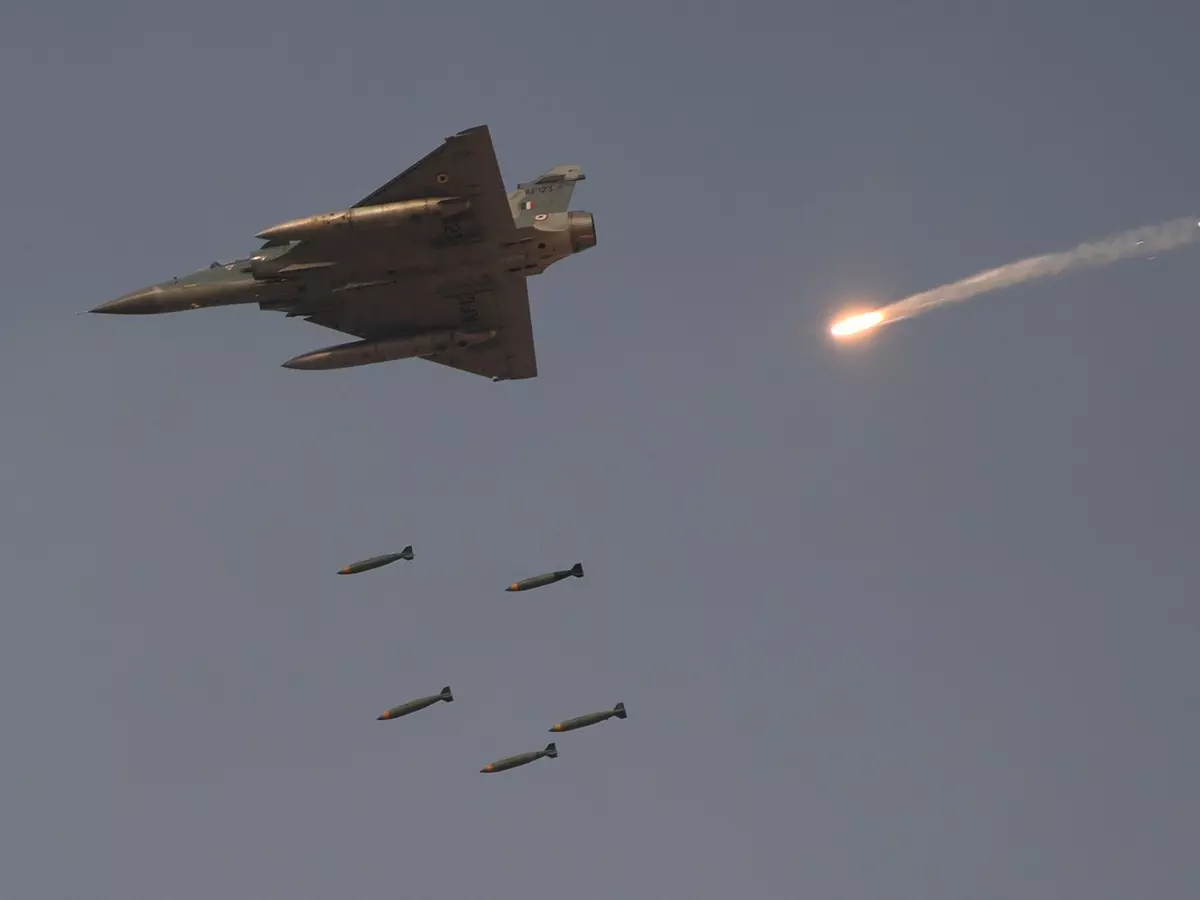US Supports India Air Force Action, Tells Pakistan To Avoid Response And Shut Terror Camps
In a statement that left no doubt where its support lies, the Trump administration on Tuesday described India¡¯s airstrike on the Balakot terrorist training facility as ¡°counter-terrorism actions,¡± emphazised Washington¡¯s close security partners

In a statement that left no doubt where its support lies, the Trump administration on Tuesday described India¡¯s airstrike on the Balakot terrorist training facility as ¡°counter-terrorism actions,¡± emphazised Washington¡¯s close security partnership with India and the shared goal of maintaining peace and security in the region, and told Pakistan to de-escalate current tensions by avoiding military action and take meaningful action against terrorist groups operating on its soil.
US secretary of state Mike Pompeo, who is in Hanoi with President Trump for talks with North Korea¡¯s leader Kim Jong UN, spoke to India¡¯s external affairs minister Sushma Swaraj and her Pakistani counterpart Shah Mehmood Qureshi underscore these points.
¡°I expressed to both Ministers that we encourage India and Pakistan to exercise restraint, and avoid escalation at any cost. I also encouraged both Ministers to prioritize direct communication and avoid further military activity,¡± Pompeo said.

bccl
The full text of the statement:
Concern Regarding India-Pakistan Tensions
Following Indian counter-terrorism actions on February 26, I spoke with Indian Minister of External Affairs Swaraj to emphasize our close security partnership and shared goal of maintaining peace and security in the region.
I also spoke to Pakistani Foreign Minister Qureshi to underscore the priority of de-escalating current tensions by avoiding military action, and the urgency of Pakistan taking meaningful action against terrorist groups operating on its soil.

bccl/representational image
I expressed to both Ministers that we encourage India and Pakistan to exercise restraint, and avoid escalation at any cost. I also encouraged both Ministers to prioritize direct communication and avoid further military activity.
The US statement, by its very wording, tone, and sequence, acknowledged India¡¯s right to conduct the punitive strikes against terrorist camps that were first recorded by US¡¯ own intelligence in 2004.
Although the statement eventually encouraged both India and Pakistan to exercise restraint, it put the onus on Islamabad to do so by abjuring military response against India and instead directing meaningful action against terrorist groups.

ap
The US statement on the subject comes hours after Pakistan¡¯s military spokesman Abdul Ghafoor threatened the country would retaliate at a time and place of it¡¯s choosing, following up on his Prime Minister Imran Khan¡¯s warning that Pakistan will not only consider retaliation but WILL retaliate against any Indian attack.
Neither man mentioned the cause of the tensions: Pakistan¡¯s unceasing hosting and use against India of terrorist groups that have been identified worldwide and proscribed by the United Nations.
Pakistan continues to coddle the Jaish-e-Mohammed despite the group taking credit and boasting about the Pulwama suicide bombing that killed more than 40 Indian paramilitary forces. In fact, Pakistani extremists and trolls celebrated the deaths on social media.

afp
Throughout last week, the Trump administration indicated it supported India¡¯s right to self-defense against such Pakistani terrorist depredations, exercising far less restraint than previous US administrations headed by Presidents Obama and Bush.
Indeed, world opinion, except for a few members of the Jammu and Kashmir contact group at the OIC, has solidly lined up behind New Delhi, the outcome of long years of restraint against Pakistan¡¯s use of terrorism.
